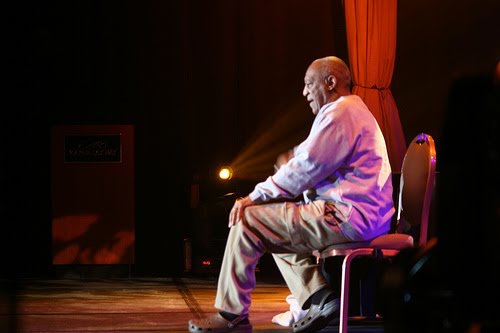
(originally published at Social Science Lite, x-posted at Postbourgie)
Last Spring, Brown University economist Glenn Loury presented at Harvard sociology’s Workshop on Race and Black Youth Culture. He titled his talk “Culture, Causation and Confusion: Why Bill Cosby is Wasting His Time,” engaging with the pervasive “rhetoric of responsibility” frequently applied to blacks in the United States. As Loury argued, our public discourse is saturated with demands on the so-called black community to police its own ranks. This rhetoric of “black communal responsibility” suggests that the solutions to racial inequality are cultural, and the ill-defined “black community” should therefore bear the burden of “fixing” its collective deficiencies.
The rhetoric of black communal responsibility is a common response to discussions of racial inequality, and black folks seem to be hearing it from both sides. From within, you have Bill Cosby, John McWhorter and even President Obama stressing the role of black parents in the cultivation and education of black children. From the outside, you have a slew of white conservatives, wide-eyed and incredulous, wondering why the black community just can’t lift itself out of disadvantage.
The problem, as Loury astutely pointed out, is that categories such as “black community,” “black culture,” and “black leaders” are political constructs void of intellectual definitions. So-called “culture talk” imputes a sense of groupness where no such political collectivity exists. African-Americans, as a race, have no institutional structures to police themselves and bring about the kind of solutions culture critics (like Cosby) demand. They don’t hold conferences or summits—at least, none that all blacks are required to attend by virtue of their racial identity. There aren’t any meeting minutes we can rifle through to make sure they are working to “fix” their collective culture. This notion of an aggregate “black community” was invented ex post facto with a distinctly political motive: impute agency on a racial category where none exists, and wipe our hands clean of any societal responsibility for inequality.
That’s not to say that racial groups don’t share certain histories, privileges, or disadvantages by virtue of their socially constructed racial identity. Moreover, many racial and ethnic groups often share certain traditions, rituals, and affinities. As a Jew, I frequently refer to myself as a “member of the tribe,” implying both a shared allegiance and shared history with my fellow Tribesmen. Such is the general case for other races and ethnicities in the U.S., African-Americans included.
But that doesn’t mean they can be expected to act like a civic collectivity or a civic organization and, by extension, engage in civic action. Who elected Al Sharpton or Jesse Jackson to be the spokesmen for the so-called black community? I don’t seem to recall a campaign or election for these self-appointed leaders. Yet the “black culture” rhetoric, purported so frequently in public discourse, assumes their civic appointment. The ability of blacks to act as a distinct group is taken for granted—an assumption of their collective agency. But a racial category is not a group with civic powers. Nor is it a collective body with a unified political or cultural agenda. As University of Chicago sociologist Mario Small has argued on countless occasions, there are multiple black communities and multiple black cultures.
The rhetoric of black communal responsibility imputes collective agency where none exists, assuming group-level cultural deficiencies while ignoring the society-level creation and maintenance of racial inequality. The logic is problematic and condescending at best, dangerous and incendiary at worst. It at once obscures the tremendous diversity among African-Americans and distracts our attention away from the actual causes of inequality. Whatever “the black community” is, we can’t exactly depend on “it” to solve, or do, anything without the institutional means to solve, or do, anything. Assuming communal responsibility is dead-end rhetoric, promoting a self-fulfilling prophecy of disadvantage. It serves a political purpose, but does little to advance our intellectual understanding of inequality.
Individual communities can certainly make important contributions toward greater social equality. But you just can’t expect an artificially constructed group, based on an arbitrarily constructed racial category, to solve inequality at the national level by itself. You can’t expect action where no institutional ability to act exists.